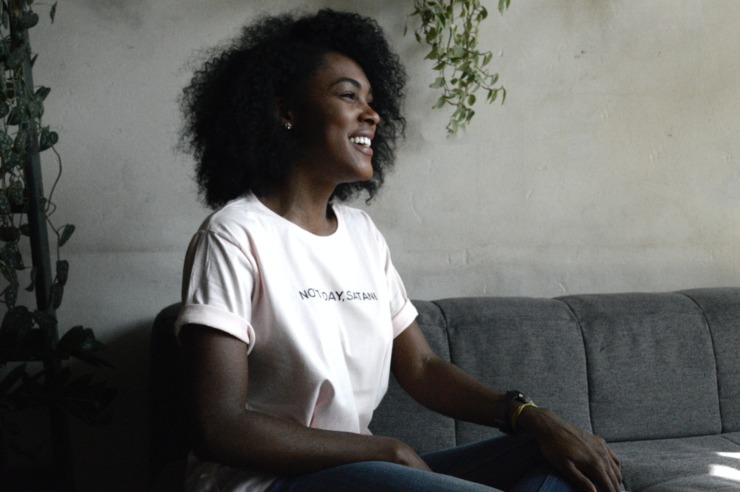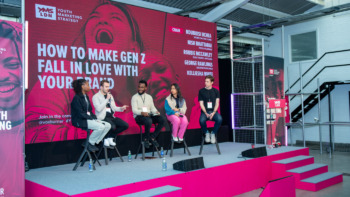There’s no doubt about it: influencing is ubiquitous across pretty much every social media platform you can name. But in a world where Gen Z values trust and authenticity, micro-influencers are held in unusually high regard.
What is a micro-influencer?
When you hear the term “influencer”, there’s likely a few things that spring to mind: a follower count in the millions, huge deals with mainstream brands, and a certain level of inaccessibility. As the name suggests, micro-influencers have much smaller followings compared to celebrity-status influencers. Exact numbers vary from source to source, but you can comfortably call anyone with a following in the region of 1,000 to 100,000 a mirco-influencer.

Micro-influencers may have fewer followers, but their content tends to be geared towards specific subject matters or spaces – think vintage clothing and travel vlogging, or even a specific aesthetic or fashion style. A smaller follower count also goes hand in hand with a more relaxed, friendly tone of voice, and higher levels of interactivity with followers. In short, this means the followers that micro-influencers have are more engaged with their content.
With this in mind, the brand opportunities open to micro-influencers tend to sit within certain sectors and verticals. Their followers are likely here for a very specific type of content, and if they do come across sponsored content, hearing it from an industry expert or thought leader will resonate more. Micro-influencers act as filtration systems – creating mini networks of highly engaged consumers, which often align with brands’ own target personas.
Why do Gen Zs love micro-influencers?
The question is – what makes micro-influencers so appealing to Gen Z? Have they turned their backs on the Kardashians and Love Islanders of the digital world?
Not quite. As digital natives, Gen Zs have blurred the boundary between social media and reality, unlike any generation before them. Their IRL and URL worlds have collided, which means their social media feeds are more curated, and the accounts they choose to follow are more reflective of their interests than other generations.

It’s tempting to divide social media accounts into two categories – the celebrity influencer, who you don’t know and will likely never speak to, and IRL friend, who you knew prior to social media. For Gen Z, there’s a third way. They respond particularly well to influencers that act like friends – and friends that act like influencers. Micro-influencers – with their smaller followings, and their tailored approach to content creation, are the ultimate embodiment of a friendly internet persona that brings the digital world a little bit closer.
Micro-influencers and trust
Despite the rapid rise of influencer marketing, Gen Z consumers are still quite tentative about turning scrolling into shopping. Celebrity or influencer endorsements are actually least likely to inspire trust in this cautious demographic. In fact, the number one factor that would convince US student shoppers that a brand is trustworthy is a recommendation from a friend or family member. Meanwhile, Perhaps paradoxically, however, 65% Gen Z get ideas of things to buy from social media.
With all of this in mind, micro-influencers are a savvy way for brands to capture the attention of Gen Z shoppers, without compromising on trust. They’ve got the digital presence to create that crucial first impression – but their smaller follower counts give them the sense of being a friend rather than a traditional influencer. They’re both inspiring and trustworthy – a win-win for a generation that’s digitally native, but also quite skeptical.
Micro-influencers and Authenticity
Young social media users are likely to see a barrage of content in just a single scroll. Gen Z has an innate ability to filter out the posts they care about from those that simply don’t resonate – and one way to guarantee their favor is authenticity.

As an ethically conscious generation, Gen Zs have long demanded a high level of transparency and authenticity from the brands they care about. Virtue signaling is a big no-no – as are the picture-perfect, idealistic sponsored posts churned out by many of the millennial-era influencers.
Instead, Gen Zs are purveyors of the imperfect. They love a hastily-thrown-together Instagram post or a warts-and-all TikTok. With their more intimate networks of followers and highly specialized content, micro-influencers also lean towards this style. They’re likely to work with brands that speak to their own personal shopping habits, or the specific type of content that you’ll find on their feed. This makes them all the more palatable for a Gen Z audience.
Want the full lowdown on Gen Z shopping trends? Make sure you check out our Student Shopping Report – your definitive guide to young consumers.














